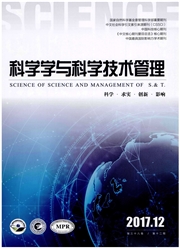

 中文摘要:
中文摘要:
技术差距是影响企业产品创新的重要因素。在市场未完全覆盖条件下,构建了纵向差异化的两阶段双寡头博弈模型,分析技术差距对竞争均衡时企业的利润、市场份额、消费者剩余和社会福利的影响;并考察在不同竞争类型下企业的策略选择和政府制定政策的差异。研究表明:高(低)质量企业为提高利润水平有加大研发投入从而扩大(缩小)技术差距的激励;政府出于对社会福利的考虑,在Bertrand竞争时倾向于限制技术差距,而在Cournot竞争时则鼓励技术差距的存在。
 英文摘要:
英文摘要:
The technology gap is an important factor affecting firms' product innovation. Under not covered mar-ket, using a two-period duopoly model with vertical differentiation, this paper investigates the effects of the tech-nology gap on the firms' equilibrium profits, market share, consumer surplus and social welfare, and compares the firms' strategy choices and policies formulated by government under different types of competition. The results show that the high (low) quality firm has an incentive to invest more in product innovation to widen (narrow) the technology gap for improving the profit. Moreover, according to the maximization of social welfare, the gove-rnment tends to limit the technology gap in Bertrand competition, and encourage it in Cournot competition.
 同期刊论文项目
同期刊论文项目
 同项目期刊论文
同项目期刊论文
 期刊信息
期刊信息
